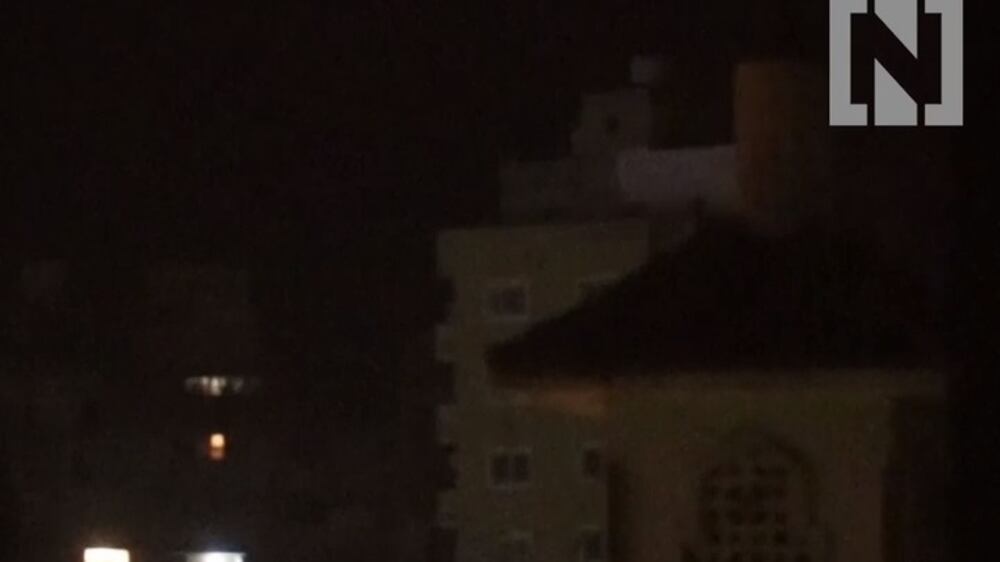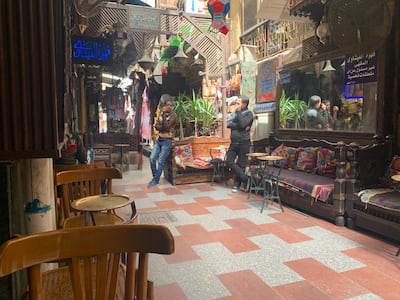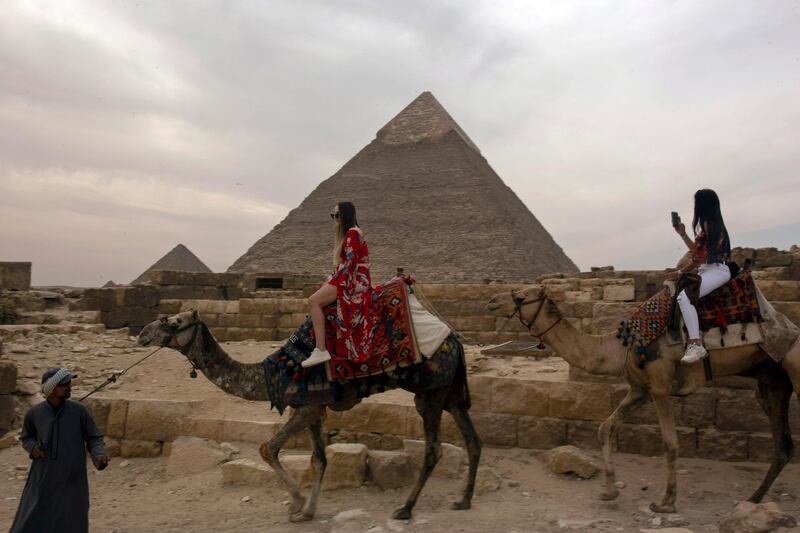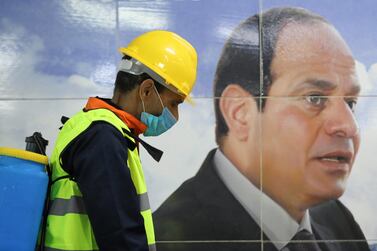There was no sign of worshippers rushing into Al Hussein Mosque in Cairo when the call for noon prayer rang out on Tuesday.
It should not have come as a surprise. The mosque’s doors were firmly shut and the muezzin had asked the faithful to stay away and pray at home.
A first in living memory, majority-Muslim Egypt has ordered mosques closed for two weeks as part of measures to combat a rapidly worsening outbreak of coronavirus.
Several grim-looking policemen in black ordered people off the part of the plaza outside the mosque in the city's Islamic quarter.
Four men from outside of the city who approached the mosque, devoted to the Prophet Mohammed's grandson, were firmly told to go home.
Covid-19: Egypt declares night-time curfew

Later, the policemen allowed another small group of men to approach the mosque’s ornate wooden door. They rested their hands on it and prayed.
The decision to close mosques was not an easy one in religiously conservative Egypt.
Some Muslims have sought to defy the ban by gathering outside mosques to pray as a group, flouting the social distancing strongly recommended the world over as an effective method to limit the spread of the coronavirus.
The restriction is part of steps authorities in Egypt have taken to limit the virus outbreak and which have altered life in the country of 100 million, particularly in Cairo, its capital of 20 million people.
Nearly 20 people have died and 366 tested positive in the country.
New measures announced on Tuesday would only further change life in a country where most people adopt a casual attitude towards a virus that has ripped through other countries.
The new measures included a two-week overnight curfew, an extension of the closure of schools and universities and a complete shutdown of restaurants and cafes.
Earlier, authorities banned large gatherings and international air travel, and closed historical sites.
Those who flout the new rules, President Abdel Fattah El Sisi pledged in a tweet on Tuesday, would be dealt with “firmly and decisively".
Egypt’s economy, especially its vital tourism, has been affected by the outbreak of the coronavirus, interrupting what was shaping up to be a record year for visitors.
Fuelled by tourism, the overall economy was also showing slow signs of recovery after years of turmoil.
Mr El Sisi has pledged billions of pounds in a stimulus package to prevent an economic depression.
The area surrounding Al Hussein mosque in Cairo presents one of a handful of examples of how the anti-coronavirus measures have changed the face of life in Cairo.
With the mosque closed, there was no sign of the thousands of pilgrims who travel from across Egypt to Cairo to pray there.
There was no long fleet of tourist buses that offload foreign visitors that shopkeepers in the famous Khan El Khalili bazaar welcome with greetings in several languages, including Spanish, English, French, Mandarin and Japanese.
Most of the shops in the famous bazaar were closed on Tuesday.
The handful that remained open had no shoppers. Their gloomy-faced owners sat outside smoking or sipping sweet black tea.
“It’s a very difficult situation,” one shopkeeper said to another as a nearby radio aired verses from the Quran, adding to the sombre atmosphere.
Even the famous El Fishawy tea house, a landmark of the area that is usually packed, had only one client before another and a group of four cheerful Mexican tourists joined him.

“It’s really bad these days, I can play to you for just a small fee,” one of the oud players, who make a living serenading the tea house patrons, pleaded with a client.
The two waiters on duty at El Fishawy stood by idly with their arms folded.
“What else can we do?” asked one of them despairingly.
A second patron, apparently a regular, ordered an extra sweet cup of Turkish coffee.
“I come here at 8am and I only get a seat with difficulty,” he mused while surveying the empty chairs and wooden benches lining the narrow alley.
It was just as bad for brothers Hamam and Hany Mustafa who walk the area selling silver medallions and worry beads.
“We have reached zero level,” Hamam said. “But that’s not true. We have reached below-zero level because it costs us money to come here every day.”
“We have kids to feed but God never forgets his creatures."
A woman in a red coat and a white headscarf fed breadcrumbs to pigeons on the plaza.
“Look at her,” Hamam said. “There are still acts of extreme kindness despite everything."
“Spread them more widely so they can all eat,” he shouted to the woman.







